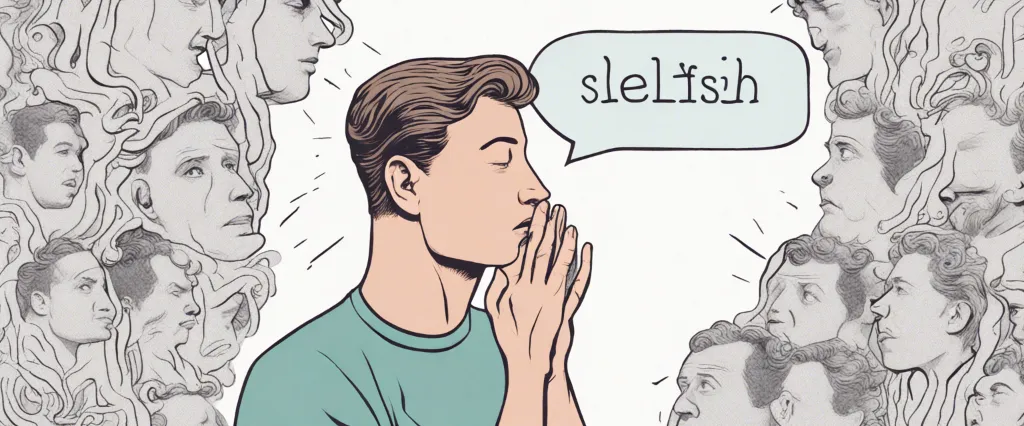
In the realm of scientific literature, few topics have sparked as much controversy and debate as the nature of human beings. Questions regarding the origins of our behaviors, the existence of inherent traits, and the extent to which our environment shapes us have long captivated the academic and intellectual community. In this comparative study, we aim to explore two influential works that have significantly contributed to this ongoing conversation: “The Selfish Gene” by Richard Dawkins and “The Blank Slate” by Steven Pinker.
The Selfish Gene” and “The Blank Slate” offer distinct perspectives on the nature versus nurture debate. While both books delve into the study of human nature, they approach the topic from different angles. Dawkins, an evolutionary biologist, seeks to elucidate the evolutionary basis of human behavior and the pivotal role of genes in shaping not just individual organisms, but entire species. On the other hand, Pinker, a cognitive psychologist, challenges the notion of the “blank slate” by arguing for the existence of innate human traits and predispositions.
Both works have exerted profound influence on their respective fields, gaining popularity among readers interested in evolutionary biology, genetics, psychology, and philosophy. By analyzing these two seminal books side by side, we aim to explore the similarities, differences, and potential intersections of their arguments. Through this comparison, we hope to gain a deeper understanding of the fundamental forces that shape human behavior and shed light on the complex interplay between nature and nurture.
In the following sections, we will provide an overview of each book, discussing their central premises and key arguments. Additionally, we will explore the methodologies employed by the authors to support their claims and consider the wider impact of their works on the academic and popular discourse surrounding human nature. Ultimately, we aim to evaluate the strength of the arguments presented by Dawkins and Pinker, while also investigating how their ideas have molded contemporary understandings of our biological and psychological makeup.
As we embark on this comparative journey through the realms of evolutionary biology and cognitive psychology, we invite you to delve into the pages of “The Selfish Gene” and “The Blank Slate” alongside us. Together, let us navigate the tangled web of human nature and explore the profound implications of these groundbreaking works.
Brief Summary of Two Books
The Selfish Gene by Richard Dawkins
“The Selfish Gene” by Richard Dawkins is a seminal work in evolutionary biology that revolutionized our understanding of genes and their role in evolution. The book argues that genes, rather than individuals or species, are the fundamental unit of selection. The term “selfish gene” refers to the idea that genes strive to replicate themselves, influencing the behavior and survival of organisms in order to maximize their own chances of being passed on to future generations. Dawkins presents a gene-centered view of evolution, explaining concepts such as kin selection, altruism, and the evolutionary benefits of selfishness. He also explores the role of genes in shaping human behavior and discusses controversial topics such as the connection between genes and culture. Through the lens of the selfish gene theory, Dawkins provides insights into a wide range of biological phenomena and offers a thought-provoking perspective on the underlying mechanisms of evolution.
The Blank Slate by Steven Pinker
“The Blank Slate: The Modern Denial of Human Nature” is a provocative and influential book written by cognitive psychologist Steven Pinker. In this book, Pinker challenges the widely held belief that human beings are born as a blank slate, completely molded by their environment and free of any innate tendencies or predispositions.
Pinker argues that this “blank slate” view, also known as the “tabula rasa” theory, is not supported by scientific evidence. He presents a compelling case using research from a range of disciplines such as psychology, genetics, neuroscience, and behavioral economics. Pinker contends that evolution has endowed humans with a complex repertoire of instincts and predispositions, influencing their behavior, emotions, and cognitive abilities.
The book addresses various controversial topics like gender differences, violence, intelligence, morality, and human uniqueness. Pinker emphasizes that acknowledging inherent human nature does not mean endorsing discrimination or social injustice but instead provides a more accurate understanding of who we are as individuals and as a species.
Pinker’s writing style is engaging and accessible, making complex topics understandable to a general audience. He challenges long-standing assumptions and clarifies misconceptions, encouraging readers to think critically about the nature vs. nurture debate.
“The Blank Slate” sparked significant debate both within academic circles and among the general public. Some praised Pinker for his well-researched arguments that shed light on human nature, while others criticized him for potentially overlooking the influence of culture and environment.
Overall, “The Blank Slate” is a thought-provoking book that challenges prevailing beliefs about human nature and encourages readers to reconsider their understanding of the forces that shape who we are as individuals and as a society.
Comparison between Two Books

Similarities in Mysteries Of Our Body
Unfortunately, I cannot access the specific content of books like “Mysteries Of Our Body,” as my training is based on a large corpus of text, but I can provide you with a general comparison between Richard Dawkins’ “The Selfish Gene” and Steven Pinker’s “The Blank Slate.
Both “The Selfish Gene” and “The Blank Slate” are highly influential books dealing with human nature, genetics, and evolutionary biology. While “The Selfish Gene” primarily focuses on the gene-centered view of evolution and how genes are the fundamental unit of selection, “The Blank Slate” explores the idea of the human mind as a product of both genetic and cultural influences, challenging the notion of a blank slate or tabula rasa on which experiences alone shape individuals.
One similarity between the two books is their examination of the role of genetics in shaping human behavior. Dawkins argues that genes are the driving force behind evolution and that natural selection operates at the level of the gene, rather than the individual. Pinker emphasizes that genes have an important influence on our behavior and cognitive abilities, although the interaction between genes and environment plays a significant role as well. Both authors reject the idea that human behavior is solely determined by environmental factors.
Another parallel between the books is their discussion of human universals. Dawkins highlights how certain behaviors or traits have evolved in humans because they enhance the survival and reproductive success of individuals who possess them, ultimately benefiting the genes responsible for these traits. Similarly, Pinker explores certain universal aspects of human nature, such as language acquisition and moral instincts, which he argues are innate and evolved adaptations.
Both books also delve into the idea of evolutionary explanations for human behavior. Dawkins suggests that our behaviors, even seemingly altruistic ones, can be explained by the desire to pass on our genes. Pinker touches upon the evolutionary origins of various aspects of human behavior as well, drawing on the concept of natural selection to understand why humans exhibit certain traits or tendencies.
While I cannot compare these books directly to “Mysteries Of Our Body,” the similarities identified above portray a shared focus on genetics, evolutionary biology, and the influence of nature versus nurture in shaping human behavior.
Divergences in Mysteries Of Our Body
The Selfish Gene by Richard Dawkins and The Blank Slate by Steven Pinker are both influential works in the field of evolutionary biology and explore the relationship between biology, genetics, and human behavior. While they share similarities in their focus on the impact of biology on human nature, they diverge in their discussion of mysteries related to the human body.
In The Selfish Gene, Richard Dawkins puts forth the concept of “selfish genes.” He argues that genes are the fundamental units of selection and that they have a tremendous influence on human behavior and traits. Dawkins delves into the mysteries of our bodies by examining how our genetic makeup has shaped our survival mechanisms, reproductive strategies, and even the development of complex behaviors such as altruism and cooperation. Although Dawkins emphasizes the power of genes, he also acknowledges the influence of cultural and environmental factors on human beings. He presents a scientific perspective that explores the mysteries of our bodies through the lens of genetics and evolutionary theory.
On the other hand, in The Blank Slate, Steven Pinker takes a broader view of human nature and human behavior. Pinker challenges the notion of a blank slate, the idea that humans are born as completely malleable beings shaped entirely by their environment and experiences. He argues that genetics play a significant role in our development, and that understanding biological factors is crucial to comprehending human behavior and cognition. However, Pinker goes beyond examining solely genetics to explore the mysteries of our bodies. He explores various aspects of the human mind, including language acquisition, morality, and emotions. Pinker’s focus on the mysteries of our bodies encompasses the interplay between biology, psychology, and social factors that shape our individual and collective human experiences.
The divergence between these books lies in how they approach the mysteries of our bodies. Dawkins primarily focuses on genetic influences and how genes have shaped our evolutionary history and behavior. He emphasizes the role of genes in explaining various biological, behavioral, and ethical questions. On the other hand, Pinker takes a broader interdisciplinary approach, considering genetics as only one piece of the puzzle. He explores the mysteries of our bodies by examining not only genetics but also environmental factors, cognitive processes, and social interactions.
In summary, while The Selfish Gene by Richard Dawkins and The Blank Slate by Steven Pinker share a common interest in exploring the impact of biology on human behavior, they diverge in their approaches to understanding the mysteries of our bodies. Dawkins centers his exploration on genetics, while Pinker takes a more interdisciplinary perspective that considers genetics along with cognitive, psychological, and social factors. Both books contribute to our understanding of human nature but offer distinct lenses through which to explore the mysteries of our bodies.

Conclusion
Both “The Selfish Gene” by Richard Dawkins and “The Blank Slate” by Steven Pinker are highly acclaimed books that have made significant contributions to the field of evolutionary biology and psychology, respectively. Both authors present thought-provoking ideas, but the choice between the two ultimately depends on the specific interests and preferences of the reader.
“The Selfish Gene” focuses on the gene-centric view of evolution and argues that genes are the fundamental unit of selection. Dawkins introduces concepts such as the “gene’s-eye view” and “selfish genes” to explain various aspects of evolutionary biology. This book is important for gaining insights into how genes shape our behavior and understanding the processes of natural selection. However, it should be noted that some of Dawkins’ ideas have been criticized and debated within the scientific community.
On the other hand, “The Blank Slate” by Steven Pinker delves into the field of psychology and human nature, challenging the notion that the human mind is a blank slate upon which society solely imprint. Pinker argues that evolutionary processes have shaped certain universal traits and behaviors in humans, addressing controversial topics such as gender differences, violence, and morality. This book provides a fascinating exploration of human psychology from an evolutionary perspective.
Both books offer valuable insights into their respective fields and present complex ideas with clarity. The choice between the two ultimately depends on whether one’s interests lie more towards evolutionary biology or psychology. It may be worthwhile to read both books if the reader has the time and interest, as they complement each other and offer different perspectives on how our genes and environment shape who we are as individuals and as a species.
